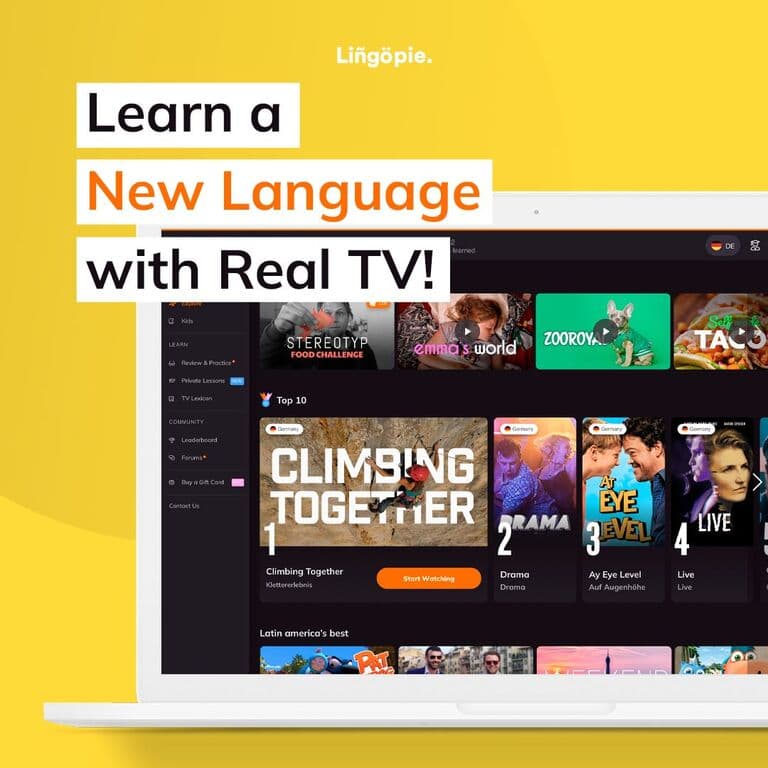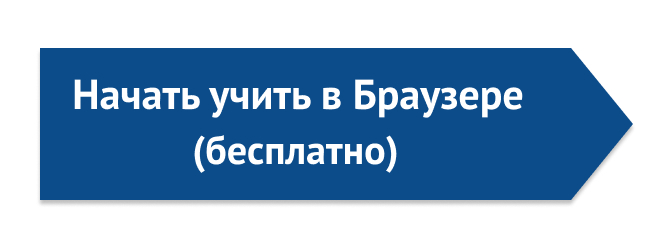
Изучение нового языка значительно расширит ваш набор навыков, независимо от того. Какой язык вы выберете.
И нет никаких сомнений в том, что изучение немецкого языка принесет вам массу преимуществ. Это повысит вашу карьеру. Откроет перед вами множество дверей и разовьет ваши интеллектуальные способности.
Но это нелегко, и хотя изучение немецкого языка принесет свои уникальные преимущества. Оно также принесет уникальные проблемы.
В этой статье мы покажем вам лучший способ выучить немецкий для начинающих. Какие методы изучения языка мы рекомендуем больше всего. Чего вы можете ожидать в своем путешествии по изучению немецкого языка и сколько языковых знаний вам понадобится. Чтобы погрузиться в глубину.
💡
Мы здесь, чтобы помочь вам найти наиболее эффективный способ для достижения вашей цели. Которая заключается в том. Чтобы говорить по-немецки. На практике и в реальных жизненных ситуациях, das stimmt?
Давайте разберемся.
Почему важно найти правильный способ изучения немецкого языка
Finding the best way to learn German actually means finding a way that’ll work for you. As a beginner, you’ll probably wonder how to start learning German. Especially if the language has a reputation for being difficult to learn.
Language learning can be an arduous process and it requires a high level of motivation. The good news is that there are plenty of resources available to assist you. You’re not alone on your journey!

Lingopie offers you a wide range of engaging and current resource material that will support you in your language learning process. You’ll be able to speak German fluently a lot sooner than you might think.
Finding what works for you
💡
You should start by acknowledging your courage and drive as you prepare to take on the challenge of learning the German language. That’ll keep you in the right headspace to learn.
Since German is often considered quite difficult to pick up. What you’ve decided to do is no small feat.
The best way to pick up a language is to immerse yourself in it as much as possible in a way that is compatible with your characteristics and learning style. In this regard, German is no different. And learning it will require full immersion and dedication on your part.
Different options to choose from
You can go about learning a new language in a variety of different ways. It’ll all depend on what your specific needs and attributes are.
For example, you could get a language tutor or enroll in an online course. Or, you could connect with native speakers or practice partners and make an effort to speak German every day.
You could also listen to German radio or watch German TV to get a feel for the rhythm and flow of the language. You could even combine these approaches to get the best from all worlds!
Whichever methods and tools you go for, the important thing is to make informed decisions. Now, let’s get you started on your quest to speak German!
Why should you learn German?
Learning the German language will prove useful to you — it’s a fact!
German is a language that will open up a sea of possibilities. In fact, there is a myriad of reasons why you might want to learn the German language. These might be for travel, study, work, or even personal reasons.
Let’s get specific, though. The German language is widely spoken throughout Europe. In fact, after English, German is actually the most widely spoken language in the European Union.
💡
There are around 100 million German speakers in the EU alone and it’s spoken in quite a few countries apart from Germany itself. These include Austria, Switzerland, Luxembourg, Liechtenstein, and Belgium.
And maybe for you… It’s the economy!

Economically speaking. Germany is one of the strongest countries in the world. Harboring leading industries such as automotive and mechanical engineering or the chemical and electrical industries.
💡
Hence, if your goal is professional, then German is an excellent choice. You’ll be in for a prosperous career. In fact, Germany has one of the lowest unemployment rates in the European continent.
Other German-speaking countries such as Austria and Switzerland also have some of the highest standards of living in the world. If you speak German fluently and are looking to advance your career. You’ll be able to enjoy the perks of living in countries that have some of the top-rated quality of life standards in the world.
Learning German will also increase the likelihood of getting a job in Germany. Even though it’s said that most Germans speak great English. The truth is that this is not entirely correct. Certainly, knowing German in a German-speaking country will get you a long way.
Or the education and culture…
German universities are some of the best ranked in the world. So, by joining the German-speaking world, you’ll have direct access to a top-notch education.
Moreover, with its particularly rich culture. German will enhance the scope and depth of your knowledge of a variety of different fields. Many native German speakers have traditionally been among some of the most cultured individuals in global western history.
After all, Germany is the home to great artists, philosophers, and thinkers, such as Mozart. Nietzsche, Goethe. And so many others.
The German language can also be of great use in your process to learn other Germanic languages. Since it’s the most complex out of all of them, it’ll give you a great headstart if. In addition to learning German. You’re looking to pick up Dutch, Afrikaans. Swedish or Norwegian.
Is it hard to learn German?
Out of all the Indo-European languages. German is generally considered to be one of the most difficult languages for English speakers to learn.
The main reason for this is that German grammar rules are well-known for being complex. German has a slightly more intricate grammar structure than English. With its different cases for articles, nouns. And pronouns. It also has a propensity at times to possess more elaborate sentence structures.
That said, if your native language is English. Then you’ll be able to identify quite a few similarities between the two languages.
If you have ever heard a native German speaker talk. You’ll realize that German sounds a little bit like a more crude version of English.
Despite some of its perceived challenges, however. Learning German can be a very rewarding experience and its many parallels with English make it an easier language to learn than Japanese or Arabic. For example.
You should not be discouraged; it’s not as hard as you may have been led to believe.
Those who are able to stick with it and persevere through the difficult parts will find that they are able to communicate with a much larger number of people. All whilst learning about a rich and interesting culture.
And, let’s not forget. Many of the difficulties that come with learning German can be alleviated by using the right resources and studying in the right way.
The Germanic language branch
German and English actually originate from the same language subgroup within the greater umbrella of the Indo-European language family.
They are both Germanic languages. Which stem from the ancient Proto-Germanic that was spoken in Iron Age Scandinavia.
Despite their common roots, when English speakers start to learn German as a second language. They might get stuck on their differences.
Don’t make that mistake! Mindset is of great importance when working on a new skill. So make sure to focus on their similarities at first. This will help you to feel grounded and confident. We’ll be getting into this in greater depth later on in this post.
Besides English, other Germanic languages that are related to German are Dutch, Swedish, Danish. And Norwegian. So, if your goal is to keep going and to learn other languages as well. German is a great way to learn any of the related languages above.
Levels of language proficiency

The Common European Framework of Reference for Languages (CEFR) divides language proficiency into three levels. These are Basic User, Intermediate User, and Proficient User.
In addition, language competence is commonly separated into four core skills. These are reading, writing, listening, and speaking. Each stage of proficiency entails a different level of competency in these four skills.
Let’s look at what this means, according to the CEFR and specifically for German learners:
Basic user
A1 — Beginner Level
- Understands simple information and phrases and uses basic linguistic structures aimed at the satisfaction of concrete needs.
- Can interact only if the other person talks slowly and is willing to help.
- Introduces themselves and others. Can ask and answer questions about personal details such as where he/she/they live. People he/she/they know and things he/she/they have.
A2 — Advanced Beginner Level
- Understands sentences and frequently used expressions that relate to family, shopping, work, etc. Can communicate in simple, routine situations.
Intermediate user
B1 — Pre-intermediate Level
💡
For German, this is actually the pre-intermediate level.
- Understands the main points when using clear standard language and when talking about familiar things from work, school. Leisure, etc.
- Can express themselves simply and coherently on familiar topics and areas of interest.
- Talks about experiences and events, describes dreams. Hopes and objectives and is able to give short explanations for his/her/their points of view.
B2 — Upper-Intermediate Level
- Understands the main content of complex texts.
- Communicates spontaneously and fluently and a normal conversation with native speakers is possible without a lot of effort on both sides.
- Can express themselves clearly and in detail on a wide array of topics.
Proficient user
C1 — Lower Advanced or Independent Level
💡
This is the level required to enroll at a university in Germany.
- Understands a wide range of more complex texts and comprehends implicit meanings.
- Can express themselves spontaneously and fluently without having to search for words.
- Can articulate in a clear. Structured and detailed manner on complex issues and uses various means of aptly connecting text.
C2 — Upper Advanced or Fluent Level
- Understands practically everything he/she/they read or hear comfortably.
- Summarizes information from various written and oral sources and presents reasons and explanations in a coherent fashion.
- Expresses themselves very fluently and spontaneously and also makes finer nuances of meaning clear in more complex matters.
Choose a learning method
There are several ways to learn to speak German. And the best way for you may depend on your learning style, goals. And preferences.

Since we are all unique and learn in different ways. Here are some options to consider:
💡
Are you visually driven? If yes, learn with visuals, movies, and tv shows.
If you’re a visual learner, you probably enjoy making language connections through images.
Create diagrams for word association and check out Lingopie or other online platforms for movies and tv shows in German.
But can you learn german by watching movies? Yes, you can — really.
Seeing words in their written form can also be considered a visual form of language learning. So don’t rule out reading!
💡
Do you learn better through listening to audio? If yes, then learn through podcasts or music.
Check out German songs to help you learn the language. Music is a fun. Yet effective way to learn a language because the melody will help you memorize German phrases in context and this will help you with fluency.
Moreover, take a look at some podcasts as well. If you’re an absolute beginner, search for language learning ones.
However, if you’re a little more comfortable with the German language, then look through Spotify. Which has a great selection of podcasts available.
💡
Do you learn better through writing? If yes, then write in the foreign language.
Start by building sentences and then slowly progress to composing short texts and continue to grow from there. If you go for this method, make sure you write by hand.
Writing something by hand increases the chances that the knowledge will be registered in your brain for later because it obliges you to process the information in a more detailed way. This, in turn, helps you successfully store that information in your memory.
💡
Do you enjoy reading? If yes, then read books in a foreign language.
This goes for visual learners as well, who need to see words, rather than just hear them. In order to fully grasp them.
Reading books in a foreign language is a great way to familiarize yourself with new sentence structures and vocabulary.
💡
Do you enjoy human interaction? Then consider using a language tutor.
Consider finding a language tutor or exchange partner, or immersing yourself in the culture.
By taking German lessons with a tutor you will get the best of human interaction and personalized guidance.
However, if you enjoy interaction but value feeling the support of others in the same situation as you. Then connect with other language learners through a group course and share your experience.
Finding a language exchange partner can also be a great way to get feedback from a native and to start speaking German without feeling under pressure in an academic or classroom environment.
Best yet, if you can, take a trip to Germany and immerse yourself in the culture first-hand. You can take a class while you’re there!
Looking into the basics of German learning

German vocabulary
Since English and German both come from the same language family. You will come across some German words that will highly resemble English words and will actually share the same meaning.
In fact, many of the most common words in English are of Germanic origin.
Similar words in different languages are called cognates. In English and German. You’ve got «Katze» for example, which is the German word for cat. «Doktor» which means doctor. And «Apfel» which means apple. Just to name a few.
Hence, German vocabulary will not be that difficult to get used to. Particularly if you are already an English speaker.
One of the most distinctive characteristics of the German language is its long words. These are interesting and fun to learn. However, believe it or not. The most common words in the German language are actually pretty short.
German idioms
German can be quite an expressive language and it is rich in idioms. Understanding idioms means understanding phrases beyond their literal meaning.
There are several German idioms that you can learn to start you off and that will help you in talking like a native speaker.
These are easy enough to find online. One that you may have heard in a couple of Latin languages is lügen haben kurze Beine (lies have short legs). This means that ultimately, the truth will always come out.
German grammar
If you’ve got to the point of delving into German grammar, then we know you’re serious!
💡
Since this aspect of the German language will probably be the most challenging for an English speaker to learn. Let’s introduce you to some similarities between English grammar and German grammar.
German and English share modal verbs, which alter the meaning of the main verb. The German modal verbs are:
- können (can)
- müssen (must)
- wollen (want)
- sollen (should)
- dürfen (may)
- mögen (like)
Now, let’s look at the main difference between the two languages.
💡
The most challenging aspect of German grammar for an English speaker will be the cases. These are known as the nominative, accusative, dative, and genitive. Cases in German apply to articles, nouns. And pronouns.
German sentence structure
We’ll begin with good news! German sentences are not entirely different from English. However, the subject. Verb and object order is often swapped around. This is common to many Germanic languages.
But what does this look like in practice? Well, German verbs often appear at the end of sentences. Take the following example:
Ich habe ein Auto gekauft = I have bought a car
In the sentence above. You can see that the second verb, — bought — (gekauft), actually appears after the noun — car. So, the literal translation is — I have a car bought.
Even if you’re learning German as a complete beginner. It’s worth familiarizing yourself with this sentence structure as soon as possible.
How to learn German step by step
-
Learn the german alphabet
Even though they’re quite similar. The German alphabet does have a few more letters than the English alphabet.
You’ll need to learn the correct pronunciation of these new letters. Listen to the sounds and then repeat them.
You’ll notice that the German letter ä doesn’t come up in any English word. This is because it’s not a part of the English alphabet.
Other letters that are exclusive to the German alphabet are ä, ö, ü and ß.
-
Learn the basic vocabulary
In the beginning, it’ll be useful to learn some German words and phrases. Since you’ll find quite a few cognates, this will make it easier to learn for you than. Let’s say, Japanese. For example.
Focus on learning key German phrases that will make short. Initial interactions possible for you.
A few useful German phrases to get you started are:
«Guten Tag», which means «good morning»
«Wie geht es dir?» which means «how are you?»
«Gut, danke» which means «fine. Thank you»
«Bis bald» which means «see you soon» -
Learn the basic grammar
Once you’ve consolidated some German words and key phrases. It’ll be time to get started on some simple grammar rules.
As referenced above. This will include getting familiar with gendered nouns, sentence structure and learning the most common German verbs.
-
Understand and form simple sentences
Once you’ve come in contact with the language already and have picked up on some simple vocabulary and grammar. You’ll be able to form and understand simple sentences.
-
Learn the vocabulary you’ll find most useful
Even if you’re just starting off with some basic German. It’s helpful to learn specific vocabulary that you’ll need in your interactions.
Think about why you’re learning German and that’ll point you in the right direction. Learn German phrases that you’ll be able to use right away.
-
Read out loud to improve your pronunciation
Doing this will really improve your speaking skills. Pick appropriate texts for beginners and practise reading them aloud to get the pronunciation right.
The German letter «z» is pronounced like «ts» in English. For example.
-
Practice listening and speaking
In order to improve your German pronunciation. It’s important to start speaking and putting all you’ve learned into practice. Don’t be afraid to make mistakes!
Speaking a language is a combination of different competence skills. Remember that understanding is as important as speaking and vice versa. Practice both.
-
Enjoy this practice in order to become an advanced learner (make it fun!)
Pick topics and activities that are exciting to you so that you keep going in the long run. This is essential if you want to be fluent.
-
Don’t lose contact with the new language
When you learn a new language. You will have to make sure to keep practicing it.
Think of it like going to the gym… If you stop going for a while, you’ll have to start practically from scratch. So don’t drop the ball and keep it up!
Great ways to learn German remotely
💡
If you’re serious about becoming fluent in German. You’ll have to make sure you continue to engage with the language regularly.
Thankfully, language learners now have a multitude of options to choose from that don’t involve sitting in a classroom.
Nowadays, whether you’re using your cellphone. Laptop or TV. Learning or speaking German is readily accessible from home.
How to learn German from home

There are many different ways that you can learn German from home. However, not all methods are the same. Some may work better for certain people than others.
One of the best ways to learn German from home is to use an online resource. There are many different websites that offer German lessons for beginners.
These websites can be a great way to learn German at your own pace. You can usually find lessons that are geared towards your level. So you can learn at a pace that is comfortable for you.
Another great way to learn German from home is to find a tutor. A tutor can help you learn German in a more hands-on way. They can also help you with any questions that you may have about the language.
If you are working with a tutor. They can also help you to learn about the culture and customs of Germany.
No matter which method you choose to learn German from home. The important thing is to get started. The sooner you start. The sooner you will be able to learn German!
How to learn German online
There are many excellent online resources available for learning German. Look for websites that offer interactive exercises or games. As these can be an engaging and effective way to learn.
By using online material. You’ll be able to come into contact with German culture even before you’ve had a chance to visit the country. Or after you’ve been there. To practice.
For example. You can take a German course that is fully taught online. Now more than ever. There are many high-quality courses available online.
In addition. Try listening to German podcasts and watching German movies through Lingopie or online streaming services. These will help you to master German pronunciation.
How to learn German by watching TV
As we’ve mentioned before. Learning German could actually be considered a heroic feat! So, if you’d like to optimize your process. Expose yourself to German media and visual content.
Our brains make associations and absorb language subconsciously as well as consciously.
This means that complementing your language learning journey by watching German movies. News programs and TV shows will be a great way to master the German language.
To learn German by watching TV. You can log on to Netflix or YouTube. Where you’ll find a lot of content to keep you active in your German learning journey. A good option is Babylon Berlin or any of these other 10 German shows on Netflix.

Lingopie also has great TV content to help you learn German.
How to become fluent in German
Surely, if you’ve made it this far. Your goal to master the German language is well underway! So, to sum up. Let’s lay out what you can do to approach your German language learning journey.
💡
As we’ve seen. You’ll want to start with the basics. Whatever that looks like for you. If you’re the academic type, get a good German grammar book or tutorial. Dive in and learn the basic rules of grammar.
Once you’ve consolidated your basic German. Practice speaking German by finding German conversation partners. Getting a language tutor or chatting to German speakers at meetups.
If you’re not into self-study and need someone to make you accountable. You can find good German courses online. And if going for traditional methods isn’t for you at all. Connect with the German language through music or learn with YouTube videos.
Another great way to learn about German culture is to watch German movies and television shows and to listen to German radio. This will help you to become more familiar with the sounds of the language and everyday expressions.
Conclusion
German learning may seem to some as a highly strenuous journey or a quasi-impossible achievement. Not to you, though! You came to look for support in the right place.
Now you’ve got a whole bundle of amazing tools and tips to feel supported on your quest to speak German. Which you can also use to learn other languages!
Summing up, the German language is much more accessible than what is commonly believed.
Why not take your language skills to the next level and embark on your language learning with Lingopie? You can use the Lingopie app to learn how to speak German through interactive content that will put you in touch with what native speakers listen to and watch. So, don’t miss out on this incredible opportunity.
Tschüss!



